Great Lakes Compact flows through U.S. House On its Way to the President

Representatives remain worried about exemptions
Sarah Haughn
Circle of Blue
As of Tuesday, grandiose visions of Lake Michigan pipelines pumping water to parched Arizona began withering in the wake of the congressionally approved Great Lakes Compact. With the Compact ratified, the Great Lakes Basin is one executive signature away from legislation that would prohibit outside parties from exporting large quantities of fresh water from its shores.
The U.S. House of Representatives gave 390 yea and only 25 nay votes to legislation banning major diversions from the Great Lakes Basin. Now the Compact is on its way to the President, who has already expressed his support.
The Great Lakes–St. Lawrence River Basin Water Resources Compact, after a decade of debate and gestation, was first signed by all eight basin states — Illinois, Indiana, Minnesota, New York, Ohio, Wisconsin, Pennsylvania and lastly Michigan in July. The Senate approved the legislation in August. Canadian provinces Ontario and Quebec have already enacted similar protective measures.
Containing 90 percent of the nation’s fresh water and a fifth of the world’s available reserve, the Great Lakes Basin is a major source of hope and concern as supplies dwindle across the globe.
Although the U.S. House passed the legislation almost unanimously, several representatives voiced significant doubt. It remains too porous, they believe. The compact still allows water to be removed from the basin, so long as it is carried out in containers less than 5.7 gallons.
It also permits emergency extractions as well as transfers for counties that straddle the basin’s borders. Although the Compact gives each state the authority to impose different degrees of regulation and conservation, to some the potential for exploitation is cause enough for alarm.
Representative Bart Stupak (MI, D-1), whose constituents populate over 1,500 miles of Great Lakes shoreline, said in a press release that he “could not in good conscience vote to ratify the Great Lakes Compact until concerns over the commercialization and privatization of Great Lakes water have been addressed.”
Stupak, who has spearheaded the movement against a speedy passage of the regulations, fears private interests who tout water as profit will take advantage of the exemption. “There was no reason to rush this compact through Congress in 20 legislative days without a hearing while questions remain,” he added.
He is not the only one to raise concern. Dennis Kucinich (OH, D-10) told the Chicago Tribune that “the Compact puts the water saved by the collective actions of conscientious Great Lakes residents into millions of bottles and ships them out of the Great Lakes basin.”
James M. Olson, an evironmental lawyer intimately involved in the fight for the public’s right to water expresses another angle to the worry over privatization. “It’s strange,” he said in a recent interview with Circle of Blue, “that the Compact does not include a public trust standard, which is the most basic, and the highest ethical standard, or stewardship standard recognized by law, by the US Supreme Court, and by the states of the Great Lakes.”
While Olson recognizes the necessary and laudable work the legislation accomplishes, he also fears that what has been historically regarded as a common resource may soon be redefined otherwise.
But most believe the Great Lakes Compact is a crucial leap toward securing one of the world’s largest stores of fresh water. According to Representative Sander Levin (MI, D-12), “There is no question that we’re in a much stronger position to protect the Great Lakes with the Compact than without it.”
Senator Carl Levin (MI-D) agreed, telling the Tribune, “Nature has given us so much in the Great Lakes. By passing the Great Lakes Water Compact, we are building on the protections of existing law to preserve this precious resource, ensuring sensible use now so that future generations can benefit from the Great Lakes as we do.”
Debate among interests both private and public continues, as the Compact makes its way to the President’s desk, moving closer to the next phase of its journey toward implementation.
Sarah Haughn is a Circle of Blue writer and researcher. Reach her at circleofblue.org/contact.


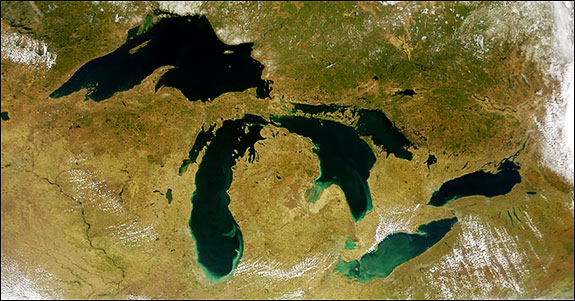

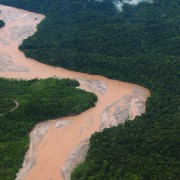



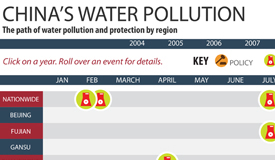


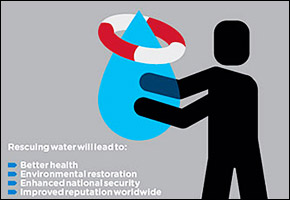
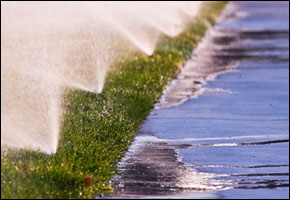
Leave a Reply
Want to join the discussion?Feel free to contribute!